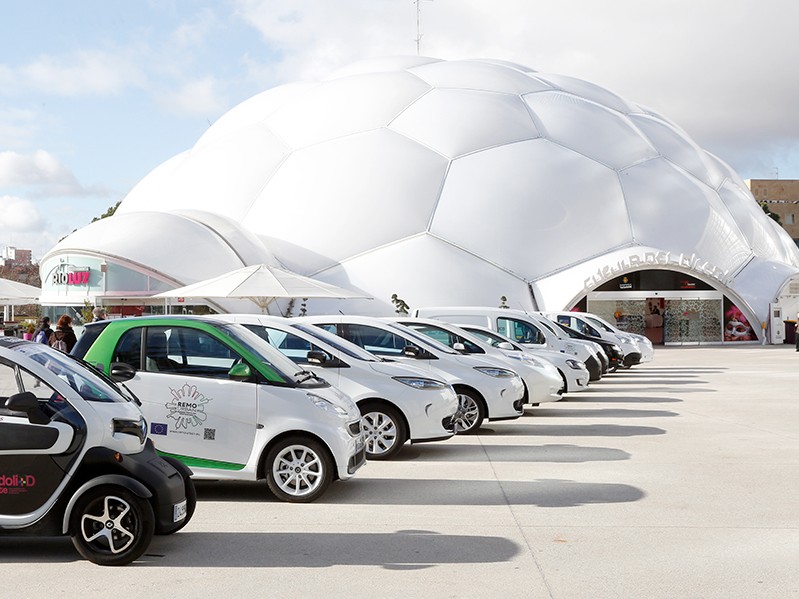EU Project Boosts Use of E-Vehicles in Valladolid
Municipal staff members are now able to drive around the city without polluting the air, thanks to the municipality's own fleet of twelve electric vehicles. Some nineteen charging points, including 1 fast and 4 semi-fast stations, strategically placed around Valladolid offer both staff and private e-vehicle owners the opportunity to recharge their vehicles. Angela Rivada of the municipality's electric vehicle office states: "In Valladolid, we're keen to promote electro-mobility and this means leading by example. Behaviour change is often long and complicated, but we've started the process and have put everything in place for that to happen. Even the mayor himself can be seen driving an e-car." To help Valladolid roll out its electro-mobility plan which includes charging stations, e-buses and citizen engagement, the city joined the EU-funded REMOURBAN project. Since its inception in 2015, the project has provided funding and ideas not only to implement the latest mobility technology but also to build sound business models for sustainably managing the infrastructure required. Other cities like Nottingham (UK) and Tepebasi (Turkey) are also participating in the project and sharing best practices and experience. The plan seems to have got off the ground as users of e-vehicles more than doubled between 2015 and 2018, up from 156 to 350 in the city of Valladolid. Measures behind this success include free parking for e-vehicles in the town centre and more charging stations close to shopping centres, hotels and other convenient locations. "Without the backing from the REMOURBAN project, we wouldn't have been able to develop and implement our e-mobility plan as quickly. It has acted as an accelerator while offering us insights into how other cities beyond Spain have doing in their endeavours," explains Angela Rivada. As the project comes to an end, promising results are emerging. In 2018 alone, 8,789 recharges took place with a total consumption of 64.519 kWh. This amounts to over 400,000 kilometres travelled by e-vehicles and almost 75,000 kg of CO2 emission avoided.



